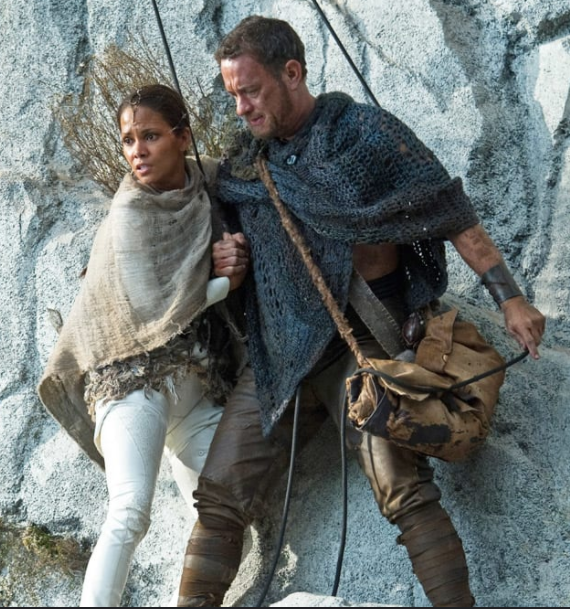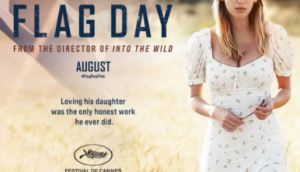‘Cloud Atlas’ based on the book by David Mitchell was probably not a great box office success because people were expecting something else and got confused.
I am guessing that not many viewers of the film have read the book before watching it. I did and it not only helped me to understand it better but also to appreciate it more. It doesn’t change the fact though that it is the kind of film that you need to watch more than once. And you do not forget about it right after the end credits but analyze it afterwords and each time you see it, you perceive new details that enrich the story. And these kind of films are the best.
In the book we get to learn about the six stories told in the manner of the Russian Dolls. We start with one, then move to the next until we get to the middle and then go gradually back to the first one. In the film it is even more confusing as we jump in time and space while trying to figure it all out. But when we finally have time to analyze it all, we realize that we are watching a development of a soul that is reborn in different bodies. To make it even more confusing, all the characters are played by just a few actors who in different epochs change their color of the skin and gender.
Our main attention is concentrated on the reincarnations of the soul marked by a comet birthmark. We see how this soul takes different decisions in different times but always tries to take the right ones and do the good. They all also create something that their next reincarnation can access: a diary, a piece of music, a manuscript, a screenplay, a broadcast. All their decisions taken in any time and space help them moving forward and the message sent from the past guides them and aids them to make a difference.
We can also concentrate on the spiritual journey of the characters played by each actor over time. For example Tom Hanks plays both good and bad people, starting as a greedy doctor and finishing as a hero that safes the humanity. On the other hand Hugo Weaving and High Grant never play likeably characters but Hale Berry and Donna Bae are mostly either neutral or good. This brings us to another idea — that nobody is purely good or bad but constantly chooses one side or the other. And by choosing good makes the world a better place. So it’s like this Cherokee story about the battle of two wolves inside us — one is evil and the other one is good. They always fight and the one that we feed, wins.
Maybe we are just a drop in an ocean but we can still have an impact because as we hear in the film: ‘What is an ocean but a multitude of drops?’.



